Last Updated: 4 months ago
Why do cats like bleach? Most weird cat behaviors are just that—weird, but ultimately harmless.
However, some can actually pose a threat to your cat’s very life. So, which does a love for the aroma of bleach fall under?
Read on to find out.
Why Do Cats Like Bleach? Explained
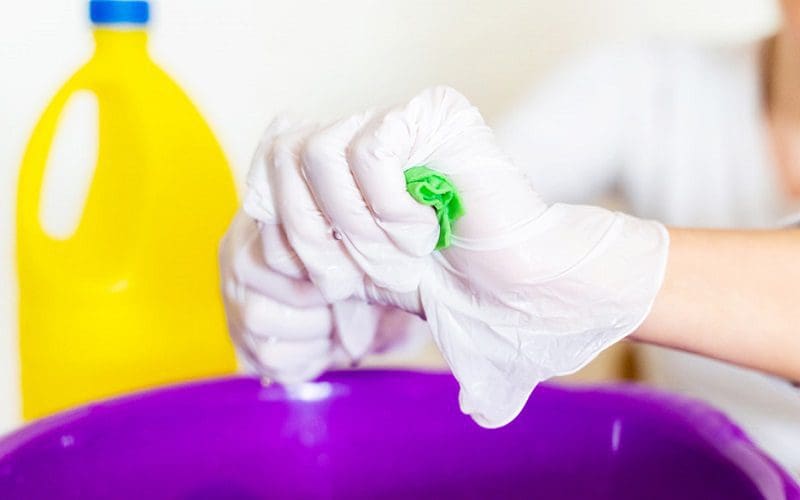
Have you ever noticed your cat has a weird reaction to the bleach smell? Don’t worry. You’re not alone.
Many cat owners have reported seeing their cats drooling, rolling, purring, or any other strange reaction to anything with the smell of bleach.
This could be your carpets after cleaning, laundry, or even the mop. So why do they react in this manner?
Possibly, cats are attracted to components like chlorine in the bleach.
Chlorine acts as a pheromone, which is the chemical that triggers an animal’s reaction towards another animal.
Please keep reading to find out why exactly they love bleach, its effects, and how to protect them.
Why do Cats love bleach?
Researchers haven’t given a clear answer to the real reason cats love bleach.
But one of the most common explanations is that they may be attracted to chlorine or other components of the chemical makeup of bleach.
Bleach is actually sodium hypochlorite. And when it decomposes, it releases chlorine and other compounds. Since cats have a way stronger sense of smell than humans, they will identify some of these components.
Sodium hypochlorite can also react with organic compounds to produce volatile organic compounds (VOCs).
When you mix bleach with tap water, the chlorine will also release chloroform, or carbon tetrachloride.
Your cat may be reacting to one or a number of these compounds. These compounds act as pheromones, which trigger a hormonal response.
A good example is in mating or when there’s an intruder. So the purring, rolling, and drooling are in response to the triggers. Cats also have a similar response to catnip.
NOTE: Cats don’t react the same way to bleach. Some will seem more interested than others. And it all comes down to their genes.
Even though some cat behavior is learned through nurturing, the response to bleach is naturally passed down from their ancestors.
You can’t do anything to change that. And as a result of crossbreeding, this trait has now been transferred to breeds that didn’t possess it.
Bleach Poisoning
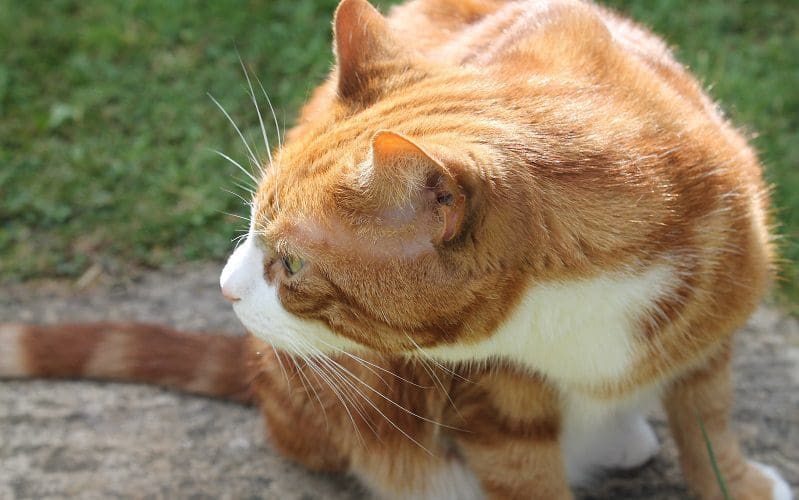
So, is bleach poisonous to cats? The smell alone won’t harm them, but ingesting it may cause some health issues.
Symptoms of bleach poisoning include:
- Excessive drooling
- Vomiting
- Stomach pain
- Sore throat
- Bleaching on the hair or paws
- Skin irritation
If you notice any of these, give the cat lots of milk or water and contact your vet.
Note: Even though essential oils are known to treat sores, they are poisonous to cats, both on the skin and when ingested.
Types of Bleach Cats Like
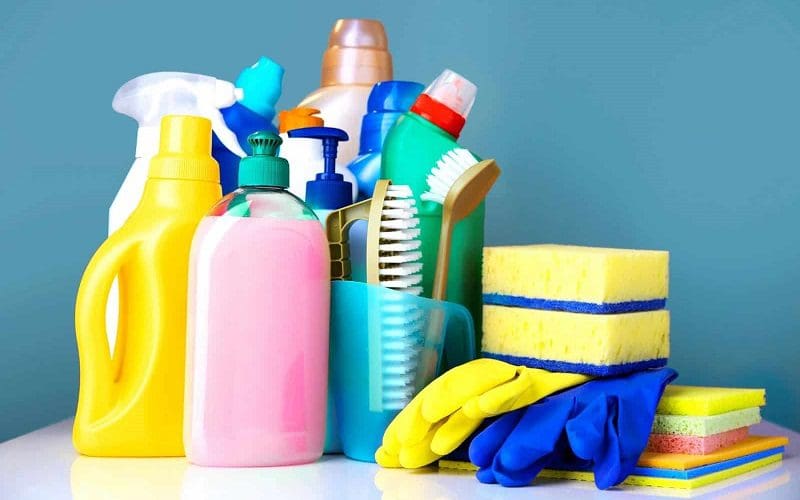
A cat’s reaction also depends on the type of bleach they consume. There are several types.
Some have high concentrations of chlorine, some have a low concentration, and some have non-chlorine bleaches.
Below are some of the most common types and how your cat may react to them.
Regular Household Bleach
This is the most commonly used bleach, and it often has a lower concentration of chlorine.
It has a pH 11 acidity level, which is enough to cause damage both externally and internally.
If it comes into contact with the cat’s skin, you’ll notice some skin irritation.
Small quantities will only cause mild lesions, but high quantities may cause lesions that require medical attention. It can also damage their eyes.
When ingested, this type of bleach will irritate the whole digestive tract (mouth, tongue, esophagus, and the stomach).
Again, the effects depend on the amount of bleach the cat consumes.
Ultra-Concentrated Bleach
This type is characterized by very high acidity levels (12 to 12.5 pH), and it’s often used in professional applications.
If you thought the regular household type was dangerous, imagine the damage the ultra-concentrated bleach will cause.
Once it comes into contact with the skin, it causes painful chemical burns.
The best thing you can do is wash the lesions, dilute the bleach, and contact your vet to help treat your furry friend.
The eyes won’t be spared either. You risk your cat losing his or her eyesight forever. The effects on the gastrointestinal tract will be worse since it’s more sensitive than the outer skin.
When consumed in large quantities, the lesions in the cat’s mouth may even start bleeding.
You need to act fast if you want to save your cat. Some of the lesions may even take months to heal.
Non-Chlorine Bleach
Instead of chlorine, this type has hydrogen peroxide. But this doesn’t make them safe. Hydrogen peroxide is also dangerous to cats.
In small quantities, it may cause mild rashes, and it may “bleach” the fur.
Large quantities may not cause much damage, but clean it as soon as possible and dilute the bleach.
Hydrogen peroxide is also fatal to the cats’ eyes. So when you notice teary eyes, clean them as soon as possible.
When ingested, this substance not only causes lesions but also causes vomiting. The lesions and vomiting get worse if consumed in large quantities.
To make it worse, as the cat vomits, the substance causes more damage to the digestive tract.
How to protect your cat from bleach
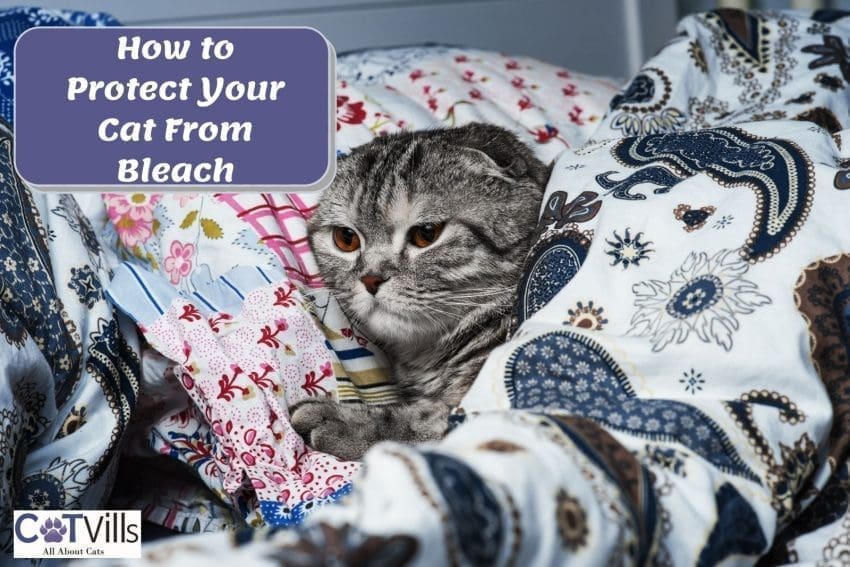
Cats can’t resist the smell of bleach, nor can they stop themselves from drinking it or licking areas you’ve touched with bleach.
So it’s up to you to protect them from it. Below are some of the ways you can do that.
- So if you have bleach around the house, keep it far away from your cat. Some cats can jump high, so placing it on shelves may not be ideal. It would be best if you placed them in lockable cabinets.
- Dilute the bleach. Diluted bleach has fewer fatal effects compared to concentrated bleach.
- Once you use bleach or other bleach-based products, clean your house, wipe it thoroughly, and make sure the cat is not around the room.
- Don’t let the cat back in until you’re sure all the areas have dried. And once you do, monitor him or her to make sure they don’t lick the floor you’ve cleaned with bleach.
Alternative Cleaning Products
One mistake some pet owners make is to wash cat boxes with bleach.
When the cat’s urine mixes with the bleach, it releases chlorine gas, which is also dangerous to cats and humans.
Below are some alternative cleaning products you can use to clean their boxes and around the house.
- Castile soap
- Baking soda
- Lemon juice
- White vinegar
Conclusion
I hope this clears everything up. Cats are attracted to various components within the makeup of bleach.
However, just because they love bleach doesn’t mean you should expose them to it. Bleach is toxic to cats and to humans.
For the sake of your health and your cat’s health, it’s better to use alternatives such as baking soda, white vinegar, or even commercial pet-safe cleaning products.
Why do cats like bleach? Any other thoughts? Share with us below!
Resources:
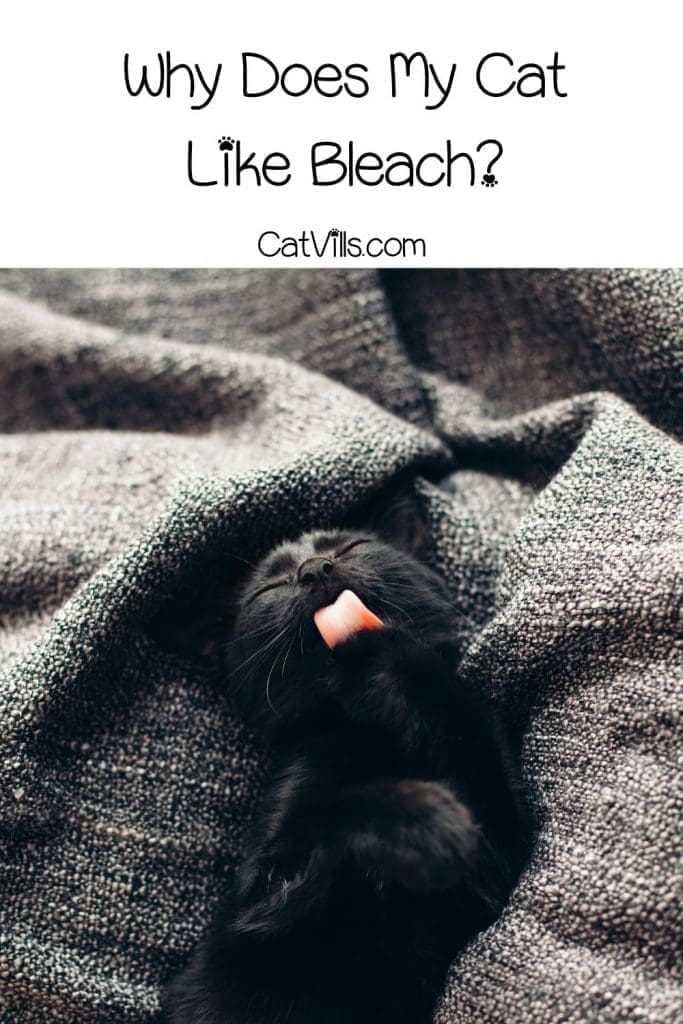

Barry Stingmore is a British content creator living in Fuerteventura, Spain. An animal lover at heart, he shares his home with a dog and four rescue cats. Barry works with the island’s animal charities to help manage and care for feral and abandoned animals. Alongside fieldwork, he works to support the charities with fundraising and raising awareness.
